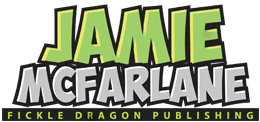A year ago, when I started writing in earnest, I read the advice of several successful authors that warned that writing was the easy part of being an independent author. For someone with no released books, this seemed like an oversimplification to me. In my untrained mind, the stories I’d dreamed of writing were the value that I wanted to add. If writing was easy then I’d have already done it.
It turns out these folks were just in a different place than I was. They were starting with the understanding that writing is a craft and that you will either get good at it or you won’t. I believe, for them, it was a given that this was hard, but it was also the price of admission.
Roll forward a year and I’ve got five books on Amazon and have had achieved some small level of success. I’ll cover the following points in a couple of posts:
- Writing is the easy part
- Control your own destiny
- Manage your time wisely
- Don’t read reviews
So if you’re interested in writing, don’t be dissuaded by this. The fact is, if all you want to do is write, then just do that. The only negative effect to just writing and ignoring everything else is that your books won’t be seen by as many people. It is also well understood that releasing another book is one of the best marketing tools we have in our arsenal.
On of the appeals of being an independent author is that control over your work is something you give. We give this control to Amazon when we ask them to publish our books in kindle store.
Amazon is a positive example of giving control. They’ve a nice arrangement that only requires that we give control for 90 day periods of time, and even during that 90 day period, we retain some control over price and complete control over content. This is an arrangement that works well for most of us.
A not as positive example of this are the upcoming changes on Facebook. In response to feedback, Facebook has decided to clamp down on advertisers and promoters. What could be bad about that you ask? A lot of authors have worked tirelessly to engage readers and build up a large base of Facebook followers.
In the last year, I’ve noticed that Facebook has been steadily reducing the number of users that see each of the posts that I put out there. Initially it seemed fair, if no one liked the post, or shared it, then it might not be seen by as many people. I’m good with a voting approach.
Starting in January, however, Facebook will be making judgement calls about my posts. If the post is deemed to be a promotion or advertisement then I’ll need to pay them to have my followers see it. For example, when I release a new book, Facebook wants me to pay them so that I can get the word out. For me, the primary purpose of my Facebook author’s page is to get the word out about new books and promotions.
What’s the rub with this, shouldn’t I just pay Facebook? Maybe. I’ve got about 200 followers on Facebook and about 200 people signed up for my email newsletters. When I’ve advertised on Facebook previously, it has cost about $0.60 per engaged user, and those aren’t sales, that’s just people clicking on it.
What’s this got to do with control? Everything. I’ve driven my readers to Facebook and let them know they can receive updates about my works there. If you want to be part of a giveaway, I’ll tell you on Facebook. In short, and in a small way, I’ve helped build Facebook’s reputation and standing by investing in the platform. They’re making a change that will help them remain relevant, but has a negative impact on my ability to communicate.
What should I have done differently? Simple. Keep control, always point my readers back to my own website and give them a mechanism to let me know that they’d like updates. Lesson Learned!
And by the way, if you haven’t signed up for the email list, please do. I’ll be respectful and not constantly spam you.
I’ll cover Time Management in Part 2 of Lessons Learned.



Trackbacks/Pingbacks